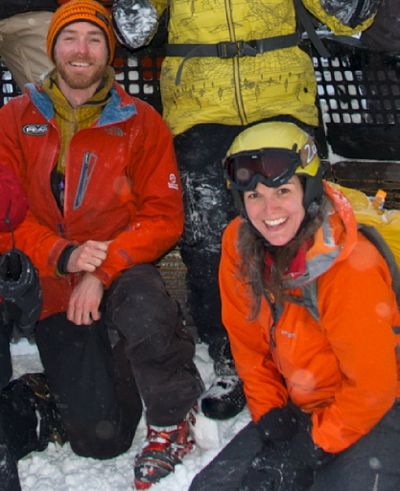Wolverine sightings curb Silver Valley snowcat skiing operation

Evidence of wolverine activity on the Rochat Divide and St. Joe Mountains south of Cataldo, Idaho, has jeopardized the permit issued to Peak Adventures, a Silver Valley snowcat skiing company that’s operated on public land for 17 years.
U.S. Bureau of Land Management officials recently notified Peak Adventures’ new owners that the odds were against their appeal and that a final decision would be made by Tuesday.
Before they bought the operation in 2009, Ryan and Carey Stanley say they were assured by the BLM district manger in Coeur d’Alene that no issues, including the documented occurrence of rare wolverines, threatened the viability of the permit.
The original permit allowed Peak Adventures to guide around 500 skiers a year on about 13,000 acres in this sub-range of the Bitterroot Mountains with elevations up to 6,300 feet. In return, the company paid BLM 3 percent of the total sales.
After a biologist’s remote camera snapped a photo of a wolverine, BLM officials declared the area subject to the National Environmental Policy Act and federal rules regarding wolverines established in 2007.
Meantime, the Coeur d’Alene Tribe also began raising objections to a snowcat operation on the Rochat Divide.
That BLM manager who apparently unknowingly misled the Stanleys regarding the viability of the permit has retired.
Curt Pavlat, the current district ranger, did not respond to a phone call this week for an update on the permit process.
Peak Adventures already had bought a second snowcat when it was notified in June that the permit was being revoked. But pending appeal, the company was allowed to operate this season on about 4,000 acres of state land surrounding Boise Peak east of its original permit area.
“Because we were in limbo until after Thanksgiving, we didn’t sink a ton of money into marketing during the critical period for bookings, Labor Day to Thanksgiving,” Carey Stanley said.
The company ended its season last weekend. The Stanleys, both in their 30s, said they weren’t optimistic for the future.
“The frustrating thing is that we thought we had the assurances we needed before we sank a large chunk of our life’s savings into the company,” she said.
“This is the only snowcat operation on BLM land and they seemed to consider it a vanguard of low-impact businesses operating on public lands.”
Considerable confusion persists among land managers on interpreting rules regarding wolverines, which have been considered but not yet accepted for Endangered Species protections, she said.
“Depending on what they tell us this week, this sets a precedent that could affect backcountry skiing operations across the Rockies,” Stanley said.
“We’ve consulted with lawyers who specialize in these issues, and we were looking at fees starting at $200,000 with no guarantees,” she said.
“It’s sad to see a small business closed in the region. A lot of our clients were from out of the area and they stayed in the Silver Valley while they were here. Now we’re looking at our options to move elsewhere.”